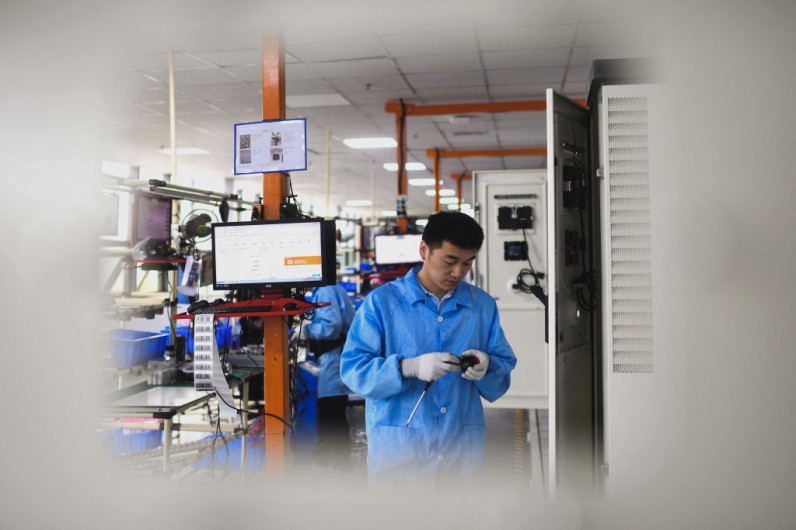
The Biden administration plans to impose new tariffs on imported Chinese tech products such as electric vehicles (EVs), semiconductors, solar equipment, and medical supplies.
According to Bloomberg and the Wall Street Journal, which first reported on the development, the tariffs were expected to be announced Tuesday (May 14) after White House officials expressed frustration over China's steady but overwhelming production of EVs and other tech products,, which, according to them, pose a threat not only to jobs in the United States but also to its national security.
Several people familiar with the matter also told the Associated Press, on the condition of anonymity as they were unauthorized to provide details ahead of the announcement, that EV tariffs could particularly increase fourfold-from the current 25% to 100%.
Besides a massive tariff jump for EVs, Tuesday's announcement was expected to retain some of the tariffs imposed during the Trump administration, covering around $360 billion worth of Chinese goods.
US Trade Representative Katherine Tai was reported to be conducting a review of the Trump-era tariffs. Republican lawmakers, such as House Ways and Means Committee chair Jason Smith and trade subcommittee chair Adrian Smith, urged the administration to expedite the probe.
On the other hand, Democrat Senator Sherrod Brown (OH) called for banning all Chinese EVs from the US in a post on X, formerly Twitter.
Tariffs are not enough. We need to ban Chinese EVs from the US. Period. https://t.co/APCcJzg9kb
— Sherrod Brown (@SenSherrodBrown) May 10, 2024
Chinese Tech Threat
The US and its European allies have been concerned about the rapid increase of cheap Chinese tech exports that would outcompete and overwhelm domestic manufacturing. Currently, China has been increasing its efforts to assert dominance in the Indo-Pacific geopolitically and in the global market.
Officials in Washington, including President Joe Biden, have been particularly concerned about how Chinese goods would undermine its climate-friendly investments through the Inflation Reduction Act, which Biden signed into law in 2022.
This would also exacerbate domestic political tensions, as Biden and former US President Donald Trump are expected to have a rematch in November's presidential election.
While Biden wanted to have a "competition" with China and not a "conflict" through industrial strategy through government initiatives like the CHIPS and Science Act, Trump has been challenging his stance against the Asian giant and has told voters that he would continue doing so should he make a White House comeback.
Trump also argued that Biden's support for EVs would only mean American jobs would go to China.
US, Western Pushback
However, the US's move to impose higher tariff rates could mean a broader trade conflict between Washington and Beijing, perhaps as broad as its military and geopolitical tensions. There have been indications that China would decrease its lithium-ion battery production-an important component of EVs, modern phones, and other consumer electronics-at a time when the country is facing Western criticism.
Earlier this week, the Chinese Ministry of Industry and Information Technology issued a draft regulation, calling on lithium-ion battery manufacturers to strengthen the industry's management and promote its "high-quality growth" through advancements in technological innovation instead of capacity expansion.
Treasury Secretary Janet Yellen also emphasized the oversaturation of Chinese tech goods not only in the US but worldwide.
In a speech in Beijing last month, she said that China was now "too large" for the rest of the world when it comes to absorbing its tech manufacturing capacity.
"And when the global market is flooded by artificially cheap Chinese products, the viability of American and other foreign firms is put into question," she added.
Aside from political authorities, stakeholders like the Alliance for American Manufacturing have also sounded the alarm, specifically in a report they released in February. The businesses and unions said in the report that introducing inexpensive Chinese automobiles into the American market would spell an "extinction-level event for the US auto sector," which accounts for 3% of the US's GDP.







Join the Conversation